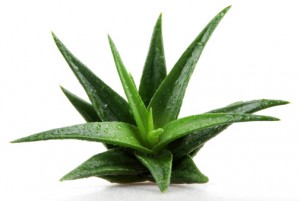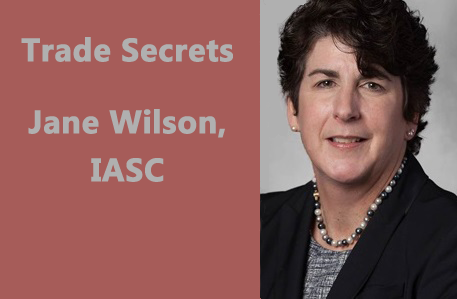In June of this year, an Illinois plaintiff filed a class action lawsuit against CVS Health Corporation in U.S. District Court for the Northern District of Illinois alleging violation of the Illinois Consumer Fraud and Deceptive Business Practices Act, breach of express warranty, breach of implied warranty and unjust enrichment (case number 1:16-cv-06103). According to the complaint, the plaintiff purchased a CVS Aftersun Aloe Vera moisturizing gel that said it contained 100% aloe vera. According to the suit, when the plaintiff had the product tested, the results showed it had no trace of acetylated mannan (acemannan), the polysaccharide component of aloe vera that is used to identify this botanical species. If a consumer product contains no acemannan, the product does not contain aloe vera.
A similar suit was recently filed by a California plaintiff against Target. According to this newer lawsuit, laboratory testing revealed that Target’s Up & Up Aloe Vera Gel contained no acemannan (Susan Nazari v. Target Corporation, Case No. 2:16-cv-02015, in the U.S. District Court for the Eastern District of California). This lawsuit points to the International Aloe Science Council (IASC) Certification Program, which requires a minimum of 5% acemannan content by dry weight in aloe vera raw materials as part of the IASC aloe vera quality standard.
CVS and Target could have avoided these lawsuits and, more importantly, this negative impact to their reputations and integrity by specifying that the manufacturers of their aloe vera products use only IASC Certified aloe vera. This would ensure that the products these retailers sell contain authentic aloe vera instead of substandard material. Manufacturers may try to save a few dollars by buying the cheapest raw material, but this increases the retailer’s risk that the product may become the target of a lawsuit claiming deceptive business practices. If Target and CVS had specified the products they sold to be certified by IASC, these lawsuits would not exist.
The IASC was formed in the 1980s to protect consumers of aloe vera and aloe vera-based products from adulteration and products falsely labeled as containing aloe vera. The IASC developed its certification programs to allow aloe growers, processors and manufacturers to submit their facilities and products to an independent audit program and series of rigorous tests which authorizes them to display the IASC Certification Seal on all compliant products and marketing materials. Companies that use the IASC Certification Seal on their products and in their literature are assuring their customers that the aloe vera used is pure and meets the quality standards of the IASC. Complementing the Product Certification program is the Facility Certification program, which ensures that aloe vera raw materials and products are being produced under Good Manufacturing Practice (GMP) conditions.
In another recent incident that IASC Certification would have helped avoid, Aloe Farms, Inc. received a Warning Letter from the U.S. Food and Drug Administration on July 15, 2016. As a result of a FDA Inspection, the letter stated “based on our inspection and subsequent review of your product labeling collected during the inspection, as well as your firm's websites, we found serious violations of the Federal Food, Drug, and Cosmetic Act (the Act) and applicable regulations.” The warning letter detailed 19 violations and now the company must begin the costly process of responding to FDA and correcting these violations.
 A manufacturing facility that obtains IASC facility certification has been inspected by an IASC auditor to ensure compliance of the facility to the program standards, including a review of manufacturing Standard Operating Procedures (SOPs) and compliance to GMP standards. Facilities earning the IASC facility certification satisfy the program requirements and establish that the facility is qualified to produce aloe raw materials or finished products. Many of the problems noted in the FDA letter to Aloe Farms are also issues that would be findings during an IASC inspection. For facilities, the IASC certification helps ensure that the quality practices of the aloe vera processor are consistent with regulatory standards so that this type of enforcement action can be avoided.
A manufacturing facility that obtains IASC facility certification has been inspected by an IASC auditor to ensure compliance of the facility to the program standards, including a review of manufacturing Standard Operating Procedures (SOPs) and compliance to GMP standards. Facilities earning the IASC facility certification satisfy the program requirements and establish that the facility is qualified to produce aloe raw materials or finished products. Many of the problems noted in the FDA letter to Aloe Farms are also issues that would be findings during an IASC inspection. For facilities, the IASC certification helps ensure that the quality practices of the aloe vera processor are consistent with regulatory standards so that this type of enforcement action can be avoided.With testing laboratories and procedures becoming more available to today’s sophisticated consumers, manufacturers and retailers should expect these types of lawsuits to continue. Corporations like Target and CVS have the resources to respond to these challenges, but most importantly their reputations have been tarnished and customers may be lost. The IASC certification programs for production facilities, aloe raw materials and finished products provide a means for the aloe vera industry to self-regulate and demonstrate commitment to supplying quality products that retailers can have confidence will meet the expectations of their customers.
 Jane Wilson is the executive director of the International Aloe Science Council (IASC). She brings to this role over 20 years of experience developing cooperative relationships with representatives of industry, trade associations, regulatory agencies, advocacy groups, and other stakeholders.
Jane Wilson is the executive director of the International Aloe Science Council (IASC). She brings to this role over 20 years of experience developing cooperative relationships with representatives of industry, trade associations, regulatory agencies, advocacy groups, and other stakeholders.NOTE: WholeFoods Magazine does not endorse any specific brand or product. The opinions expressed in bylined articles are not necessarily those of the publisher.
Posted on WholeFoods Magazine Online, 9/7/2016









